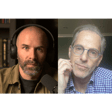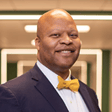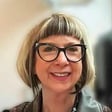
Episode 2 - An Interview with Dr. Joe Morgan, CEO and Co-Founder, Waya Health
Convergent Health: How Personalized Data and XR will Transform Healthcare
Dr. Morgan is a board-certified anesthesiologist, and the founder and President at Waya® Health. Dr. Morgan’s interest in extended reality started shortly after completing his residency in 2015. Seeing the vast potential for extended reality in healthcare, he and his team began building systems that pioneer extended reality technologies for patient-centered applications. Waya® is a healthcare technology company composed of practicing physicians and software developers focused on creating assessments, diagnostics and therapeutic solutions to help patients. Dr. Morgan conceived and contributed to the development of the Waya® Health platform – an immersive system designed for the safe and effective implementation of patient-centric virtual and augmented reality applications. Waya® Health has become a company with national reach, used by healthcare institutions across the United States.
Dr. Morgan completed medical school at SUNY Upstate Medical University in Syracuse, NY and completed his residency in anesthesiology at the Cleveland Clinic in Cleveland, Ohio. While at the Cleveland Clinic, he designed, developed, and patented a system for the collection and the environmentally friendly destruction of controlled substance waste. He is currently the perioperative medical director at Watauga Medical Center in Boone North Carolina. He has created educational programs to guide healthcare providers through the process of starting their own immersive care programs and has also advanced educational efforts for residents focused on the use of extended reality.







